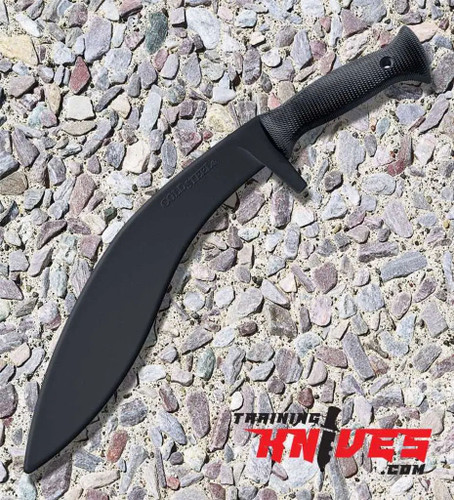Kukris
Kukri Trainer Knives
Kukri knife trainers are important for several significant reasons, particularly in the contexts of martial arts training, historical study, and practical applications:
-
Skill Development: Kukri knife trainers allow practitioners to develop and refine their skills in using the kukri knife, which is a traditional Nepalese knife known for its curved blade and versatility. Training with kukri trainers helps individuals learn techniques such as cutting, chopping, slashing, and defensive maneuvers in a safe and controlled environment.
-
Safety Training: The primary importance of kukri knife trainers lies in safety. Kukri knives, with their sharp blades and distinctive design, can be hazardous if mishandled or used without proper training. Trainers provide a safe alternative, allowing beginners and advanced practitioners alike to practice without the risk of serious injury from accidental cuts or stabs.
-
Realism in Training: Kukri knife trainers are designed to closely mimic the weight, balance, and handling characteristics of real kukri knives. This realism enables practitioners to simulate realistic combat scenarios and techniques effectively, enhancing muscle memory and proficiency in using the weapon.
-
Cultural and Historical Significance: The kukri knife holds significant cultural and historical importance in Nepal and among Gurkha soldiers worldwide. Training with kukri trainers helps preserve these cultural traditions by educating practitioners about the knife's origins, its role in Nepalese culture and military history, and its symbolic significance.
-
Versatility and Adaptability: Kukri knives are versatile tools used in various applications, including hunting, camping, and military operations. Training with kukri trainers prepares individuals for these practical uses by familiarizing them with the knife's capabilities and optimal handling techniques.
-
Cost-Effective Learning: Using kukri trainers reduces the costs associated with purchasing and maintaining live-blade kukri knives. Trainers are durable and designed to withstand repeated use in training sessions, making them a cost-effective option for continuous skill development.
-
Legal and Practical Considerations: In many jurisdictions, carrying or using live-blade kukri knives may be restricted due to safety and legal concerns. Trainers provide a practical solution for training and demonstrations, ensuring compliance with local laws while still allowing practitioners to learn and showcase their skills safely.
-
Education and Professional Training: Kukri trainers are utilized in martial arts schools, self-defense classes, military training programs, and cultural exhibitions. They facilitate structured learning and skill acquisition, preparing students and professionals for scenarios where the use of a kukri knife may be necessary or appropriate.
In summary, kukri knife trainers are indispensable tools for skill development, safety training, cultural preservation, versatility in practical applications, cost-effective learning, legal compliance, and professional training. They enable practitioners to learn and master the techniques associated with the kukri knife while respecting its cultural heritage and ensuring safety during training sessions.





